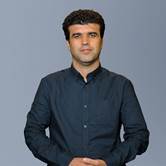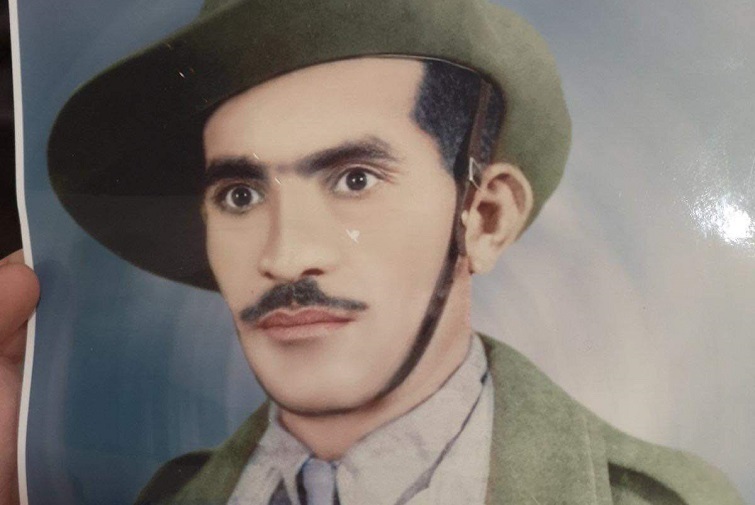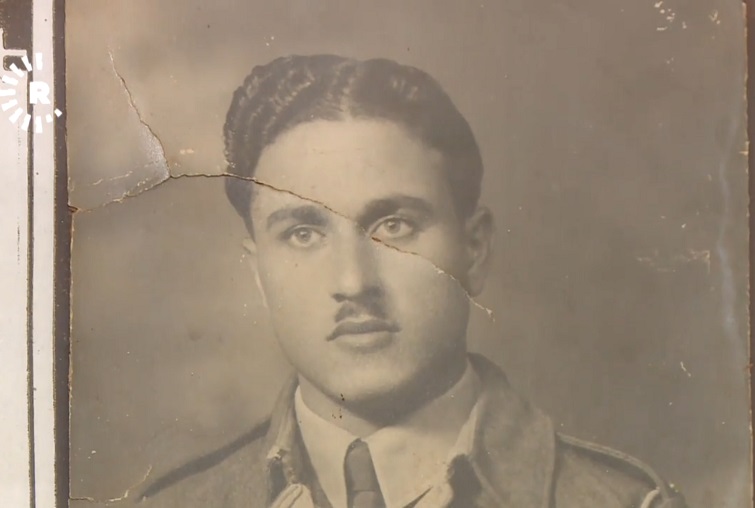Kurdish WWII veterans: Trump wasn’t born when we fought the Nazis
yesterday at 04:30 | 22,200 Views 17 Comments

Fazel Hawramy

Ahmad Mustafa Delzar, a Kurdish veteran of the Iraq Levies, holds a photograph of himself in uniform as he speaks to Rudaw from his bed in Erbil, October 12, 2019. Photo: Fazel Hawramy / Rudaw
A+A-
ERBIL, Kurdistan Region – Ahmad Mustafa Delzar may be frail nowadays, but his mind is sharper than ever as he approaches his 100th birthday. On Wednesday, when US President Donald Trump justified his Syria withdrawal by claiming the Kurds never helped the US in the Second World War, Delzar, a veteran of that very war, was outraged.
“Trump was not born then – that is why he does not know that the Kurds participated in the war,” Delzar told Rudaw’s Hiwa Jamal on Saturday.
Trump was accused of abandoning the Kurds of northern Syria, a critical ally in the war against the Islamic State (ISIS), when he greenlighted the ongoing Turkish offensive.
In an attempt to justify his withdrawal of US troops, seen as the guarantors against a Turkish invasion, Trump said: “They didn’t help us in the Second World War. They didn’t help us with Normandy.”
Trump’s comments raised doubts about the reliability of the United States as a partner in the region, with many Kurdish politicians rethinking their long-held faith in the superpower as their protector.
Delzar, who was born in 1920 and is a well-known Kurdish poet, became a member of the Iraq Levies, a minority scout force established by the British during the First World War to control Iraq, in 1943.
“The levies were mainly Assyrians and Kurds and a smaller number of Arabs,” Delzar told Rudaw. “I was the 8,000th Kurd who joined the levies during the Second World War. I joined the levies on February 28, 1943.”
Delzar went through intense training at Habbaniyah airbase in western Baghdad and then transferred to Palestine via Syria in December 1944. Dezlar and a number of other Kurdish levies stayed on in Haifa in Palestine until the war ended.
“There were around 40 Kurds who participated on the northern Italy front and one of them was Karim Abdulwahid Haji Aziz,” Delzar recalled. “Karim was a paratrooper and I remember he parachuted twice in Habaniyah.”
The veteran, who spoke to Rudaw from his bed in Erbil, still wears a Kurdish hat known as klaw, with the word Kurdistan embroidered on it.
He’s not alone in speaking out against Trump’s false claims. Several families have come forward with photographs of their fathers and grandfathers proving they were on America’s side in World War Two.
“I heard Trump saying that the Kurds did not take part in the war. He is lying,” 69-year-old Mam Fareq Sadeq Ahmad, originally from Kirkuk, told Rudaw, showing a photo of a young, clean-shaven man in green uniform.

Sadeq Ahmad, father of Mam Fareq. Photo: submitted / Rudaw
“My father was a machine-gunner and used to talk about his adventures in Cyprus, Greece,” Mam Fareq said of his father, who died at the age of 85.
“He was in Cyprus for four years and spoke very good English,” Ramziya Mustafa told Rudaw of her late husband Karim Mustafa Sinjawi, another member of the levies who fought the Nazis in Cyprus alongside the Royal Air Forces (RAF).
“When he was recruited, he was too young [15] so he had to place a stone under his feet to look taller to the British recruiting officer.”
A photo of Karim Mustafa, taken in 1946, still takes pride of place at her home in Erbil, with his distinct curly hair parted down the middle, clean shaven cheeks and well-trimmed moustache.

Karim Mustafa. Photo: submitted / Rudaw
Pressure is mounting on the US president to halt the Turkish attack on the Kurdish areas, known as Rojava, in northern Syria.
“The president of the United States is not stable, he changes his mind very quickly,” Delzar told Rudaw. “He said if Turkey attacks Syria, we would destroy its economy but he did nothing.”
rudaw.net |




